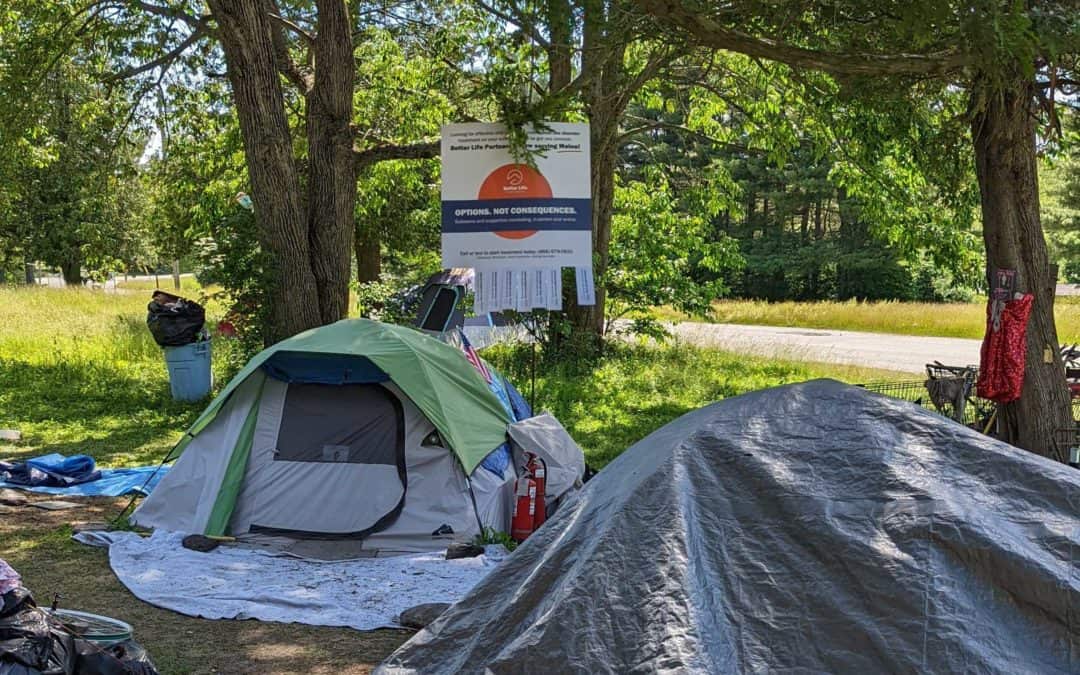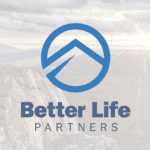“We are now faced with the fact that tomorrow is today. We are confronted with the fierce urgency of now. In this unfolding conundrum of life and history, there ‘is’ such a thing as being too late. This is no time for apathy or complacency. This is a time for vigorous and positive action.” – Dr. Martin Luther King, Jr.
On July 19, 2018, in the basement of a Unitarian Church in Lebanon, New Hampshire, a vision imagined by our co-founders Adam Groff, an internist, and Steve Kelly, a Navy veteran, came to life. It was a vision that emerged from the recognition of our society’s extraordinary gaps in health outcomes, especially for those with substance use disorders. Adam and Steve understood that closing those gaps required caring for the whole person while creating flexible treatment options – not consequences. They focused on building a treatment model centered around making quality care as easy to access as possible, especially for those with the fewest resources and means. By listening and working with our members, they quickly recognized that truly accessible care required a different, more community-centered approach. And that approach required purpose-built technology to scale an effective, delightful, and reliable experience that generated positive outcomes for both members and clinicians.
When we welcomed our first member on this very day four years ago, we recognized the urgent need to get this right. Our team, still today composed of many in recovery themselves (or those with parents, siblings, family or friends in recovery), understood all too well the frequent fatal consequences of a lack of immediate access to effective substance use care. We worked mightily to reduce barriers and streamline engagement in care for our members so they could start essential treatment within hours of reaching out to us.
We understood then and now the chronic daily struggle of families and communities, trying to live with a stigmatized disease where poor outcomes are blamed on the patient, not the care models or systems that at best allow those outcomes to thrive. We built an organization that met people where they were, with no judgment and no barriers as to how or when they could receive treatment. We focused on outcomes, not fees. We made Belonging Love and Purpose our pillars, providing care that is soaked in autonomy, dignity, and respect.
And members found us. Since 2018, we have been honored to partner with thousands of members, many referred by other members, their families, or community organizations. We expanded from New Hampshire to Vermont, Maine, and Massachusetts – our services built on a foundation of strong community partnerships that make care available to anyone in need. From one of our first community partners, 1269 Café, to newer ones like Vermont CARES and New North Citizens’ Council, we have been able to meet people where they are, whenever they seek care.
In addition, we have expanded the kinds of services we offer, now providing treatment for both opiate and alcohol use disorders, while also, in some states, supporting our members’ mental health and basic primary care needs. Understanding that there is indeed no time for complacency, we have advocated for harm-reduction approaches, greater access to substance use treatment, and the decriminalization of substance use.
In New Hampshire, we testified in support of the HB 503 amendment, which made medication-assisted treatment (MAT) more accessible by removing the in-person requirement needed to start care. In Vermont, we testified for H.644 and H.503 in support of decriminalization of drugs. We also brought our services to the fight against hepatitis C in New England, a tragic by-product of the opioid crisis.
And we are seeing results. Our members report using less drugs, and finally finding (or re-finding) Belonging, Love and Purpose. Within 1 month of partnering with us, they are less depressed, less anxious and less likely to end up in the emergency department or hospital. They report finishing school, going back to work, finding life-partners, birthing their first children or just chilling, watching a baseball game, fully present and aware. And for this we are thankful and proud. But we cannot rest.
Data from the CDC estimates 11 Americans died of an overdose per hour in 2020. And yet according to an August 2021 article, The Epidemiology of Drug Abuse by Martha J. Ignaszewski, MD., “Current estimates show that about 10% of Americans whose drug or alcohol use reaches the level of a diagnosable substance use disorder receive any type of specialty treatment. … Women with opioid use disorder are less likely to access treatment, to be prescribed buprenorphine, methadone, or naltrexone, and are 3 times less likely to receive naloxone after overdose…. Black patients may be less likely to receive treatment for opioid use disorder in primary care settings and generally have lower odds of completion of treatment. … Comparing to adults, youth aged <25 years receive one-tenth the treatment for opioid use disorder, almost 70% receive no treatment within 30 days after incident opioid overdose…”
There is so much more to do. Treatment works to save lives, return people, families and communities to health, and decrease the costs associated with this disorder. At Better Life Partners, we see our work as getting effective whole-person addiction care to anyone who wants it – wherever and whenever. To borrow the words of Dr. King, “…Tomorrow is today.…This is no time for apathy or complacency. [We must pursue] vigorous and positive action.”
Four years in, and that’s exactly what we’re doing.






